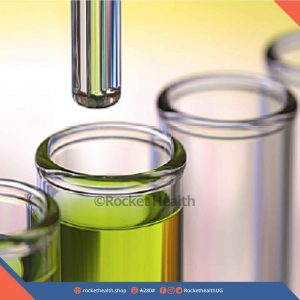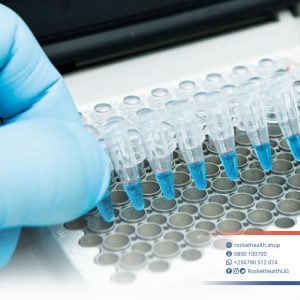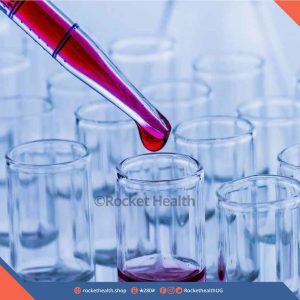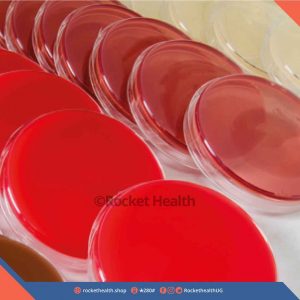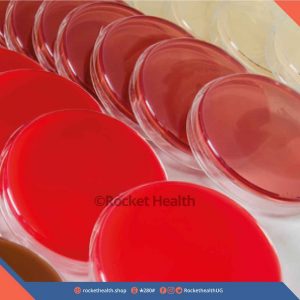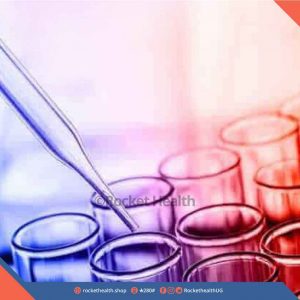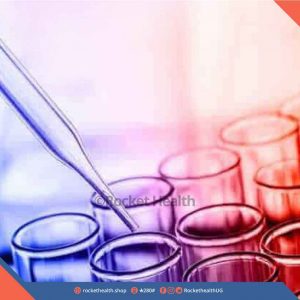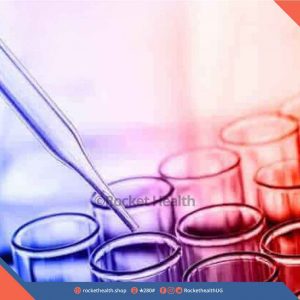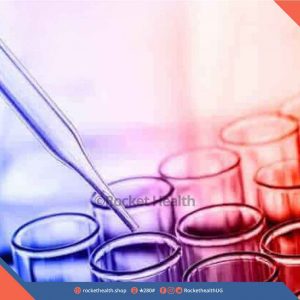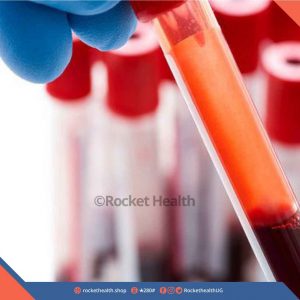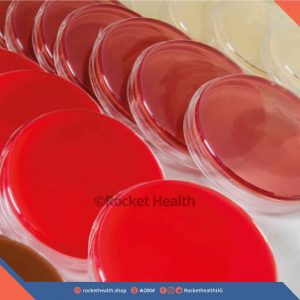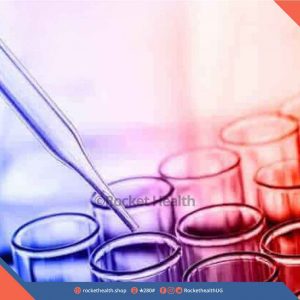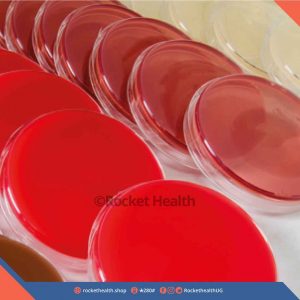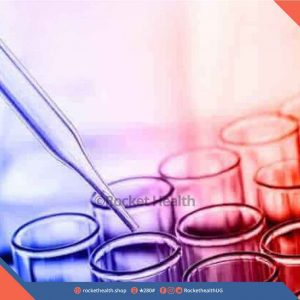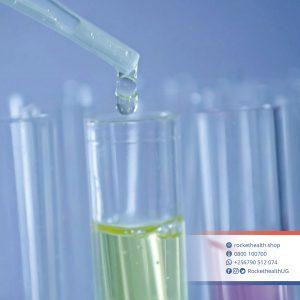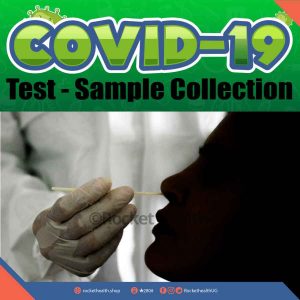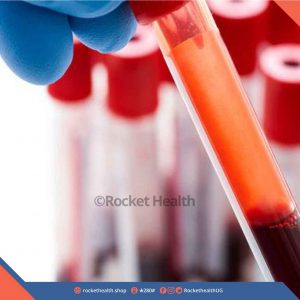No products in the cart.
Alpha Feto Protein
This test measures the level of Alpha Feto Protein (AFP) in the blood. Liver damage and certain cancers can increase AFP concentrations in the blood.
Blood.
No specific patient preparation protocol required. Inform the doctor if you are on any medications, have any allergies or underlying medical conditions before your test
Alpha-fetoprotein (AFP) is a protein produced primarily by the liver in a developing baby (fetus) and the portion of a developing embryo that is similar to the yolk cavity in bird eggs. AFP is produced whenever liver cells are regenerating. With chronic liver diseases, such as hepatitis and cirrhosis, AFP may be chronically elevated. Very high concentrations of AFP may be produced by certain tumors. This characteristic makes the AFP test useful as a tumor marker. Increased amounts of AFP are found in many people with a type of liver cancer called hepatocellular carcinoma and in a liver cancer occurring in infants called hepatoblastoma. They are also found in some people with cancers of the testicles or ovaries.
UGX 65,000Alpha Feto Protein
UGX 65,000HIV Elisa
This is one of the more sensitive tests for presence of HIV infection by detecting HIV antigens and antibodies in blood.
Blood.
No specific patient preparation protocol required. Inform the doctor if you are on any medications, have any allergies or underlying medical conditions before your this test
The enzyme-linked immunosorbent assay (ELISA), also known as an enzyme immunoassay (EIA), detects HIV antibodies and antigens in the blood. Antibodies are proteins produced by the immune system, which helps your body fight disease. The immune system produces the antibodies in response to the presence of foreign substances, such as viruses. By contrast, antigens are any foreign substance in the body that causes the immune system to respond.
UGX 65,000HIV Elisa
UGX 65,000Anti Nuclear Antibody (ANA)
This test looks for antibodies in your blood that may indicate the presence of an autoimmune condition which causes your immune system to attack your own body cells, tissues, and organs.
Blood.
No specific patient preparation protocol required. Inform the doctor if you are on any medications, have any allergies or underlying medical conditions before your test
Antinuclear antibodies (ANA) are a group of autoantibodies produced by a person’s immune system when it fails to adequately distinguish between “self” and “nonself.” ANA react with components of the body’s own healthy cells and cause signs and symptoms such as tissue and organ inflammation, joint and muscle pain, and fatigue.
UGX 70,000Anti Nuclear Antibody (ANA)
UGX 70,000Sputum ZN, Gram stain + culture and sensitivity
A culture is a test to find the exact germs (such as bacteria or a fungus) that is causing an infection. A sensitivity test checks to see what kind of medicine, such as an antibiotic, will work best to treat the illness or infection.
Sputum.
Do not take antibiotics for atleast 3 days before the test.
A test that demonstrates the presence of disease causing organisms in the body. Culture and sensitivity demonstrates the presence of disease causing organisms in the body and to identify which medicines can best eliminate them. In this test, disease causing organisms (most commonly bacteria and fungi) are grown in the laboratory (cultured) and medicines tried on them to determine which ones best work on them (sensitivity testing).
UGX 70,000Blood culture and sensitivity (Aerobic)
A culture is a test to find the exact germs (such as bacteria or a fungus) that is causing an infection. A sensitivity test checks to see what kind of medicine, such as an antibiotic, will work best to treat the illness or infection.
Blood.
Do not take antibiotics for atleast 3 days before the test.
A test that demonstrates the presence of disease causing organisms in the body. Culture and sensitivity demonstrates the presence of disease causing organisms in the body and to identify which medicines can best eliminate them. In this test, disease causing organisms (most commonly bacteria and fungi) are grown in the laboratory (cultured) and medicines tried on them to determine which ones best work on them (sensitivity testing).
UGX 72,000Blood culture and sensitivity (Aerobic)
UGX 72,000HB ELECTROPHORESIS
This is a blood test that is used to check the different types of hemoglobin and can be used to detect hemoglobin disorders such as sickle-cell disease.
Blood.
No specific patient preparation protocol required. Inform your doctor if you are on any medications or have any underlying medical conditions or allergies before undergoing this test.
Hb electrophoresis is done to detect hemoglobinopathies. A hemoglobinopathy is an inherited blood disorder in which an individual has an abnormal form of hemoglobin (variant) or decreased production of hemoglobin (thalassemia).
UGX 75,000HB ELECTROPHORESIS
UGX 75,000CA 15-3 (Breast Cancer)
This test measures Cancer antigen 15-3 in the blood. (CA 15-3) is a protein that is produced by normal breast cells but in many people with cancerous breast tumors, there is an increased production.
Blood.
No specific patient preparation protocol required. Inform the doctor if you are on any medications, have any allergies or underlying medical conditions before this test.
Cancer antigen 15-3 (CA 15-3) is a normal product of breast cells. Concentrations of CA 15-3 in the blood are often increased in breast cancer. CA 15-3 does not cause cancer; rather, it is a protein that is shed by the tumour cells, making it useful as a marker to follow the course of the cancer. CA 15-3 is rarely elevated in women with localised breast cancer but is increased in about 75% of those with breast cancer that has metastasised (spread to other organs). CA 15-3 also may be elevated in healthy people and in individuals with other cancers, or diseases, such as bowel cancer, lung cancer, cirrhosis, hepatitis, and benign breast disease.
UGX 75,000CA 15-3 (Breast Cancer)
UGX 75,000CA 19-9 (Pancreatic Cancer)
This test measures the amount of a protein called cancer antigen 19-9 (CA 19-9) in the blood helping to monitor the progress of pancreatic cancer treatment.
Blood.
No specific patient preparation protocol required. Inform the doctor if you are on any medications, have any allergies or underlying medical conditions before this test.
Cancer antigen 19-9 (CA 19-9) is a protein that exists on the surface of certain cancer cells. CA 19-9 does not cause cancer; rather, it is shed by the tumor cells and can be detected by laboratory tests in blood and sometimes other body fluids. CA 19-9 is elevated in about 70% to 95% of people with advanced pancreatic cancer. However, CA 19-9 may also be elevated in other cancers, conditions, and diseases such as: gallbladder and bile duct cancers (cholangiocarcinoma), colorectal cancer, gastric cancers, ovarian cancer, lung cancer, liver cancer, bile duct obstruction (e.g., gallstones), pancreatitis, cystic fibrosis, thyroid disease, and liver disease. Small amounts of CA 19-9 are present in the blood of healthy people. Since CA 19-9 is not specific for pancreatic cancer, it cannot be used by itself for screening or diagnosis.
UGX 75,000CA 19-9 (Pancreatic Cancer)
UGX 75,000CA-125 (Ovarian cancer)
A Cancer Antigen 125 test measures the amount of the protein cancer antigen 125 in your blood helping to monitor ovarian cancer during and after treatment.
Blood.
No specific patient preparation protocol required. Inform the doctor if you are on any medications, have any allergies or underlying medical conditions before this test.
CA 125 is a protein often found on the surface of ovarian cancer cells and in some normal tissues. It is used as a marker for ovarian cancer. However, CA 125 levels may also be high in other types of non-cancerous conditions, including menstruation, pregnancy, and pelvic inflammatory disease.
UGX 75,000CA-125 (Ovarian cancer)
UGX 75,000D-Dimer
D-dimer tests are used to help rule out the presence of an inappropriate blood clot (thrombus).
Blood.
No specific patient preparation protocol required. Inform the doctor if you are on any medications, have any allergies or underlying medical conditions before this test
D-dimer is one of the protein fragments produced when a blood clot gets dissolved in the body. It is normally undetectable or detectable at a very low level unless the body is forming and breaking down blood clots, then its level in the blood can significantly rise. While clots most commonly form in the veins of the legs, they may also form in other areas as well. Measurements of D-dimer can be used to help detect clots in any of these sites. For example, clots in coronary arteries are the cause of myocardial infarction (heart attacks).
UGX 75,000D-Dimer
UGX 75,000PROSTATE SPECIFIC ANTIGEN (FREE)
This test is used to determine risk of prostate cancer.
Blood.
No specific patient preparation protocol required.
Prostate specific antigen (PSA) is a protein produced primarily by cells in the prostate, a small gland that encircles the urethra in males and produces a fluid that makes up part of semen. Most of the PSA that the prostate produces is released into this fluid, but small amounts of it are also released into the bloodstream. Prostate-specific antigen test indicates the presence of prostate cancer, prostatitis or an enlarged prostate gland in men.
UGX 80,000PROSTATE SPECIFIC ANTIGEN (FREE)
UGX 80,000Blood culture and sensitivity (Anaerobic)
A culture is a test to find the exact germs (such as bacteria or a fungus) that is causing an infection. A sensitivity test checks to see what kind of medicine, such as an antibiotic, will work best to treat the illness or infection.
Blood.
Do not take antibiotics for atleast 3 days before the test.
A test that demonstrates the presence of disease causing organisms in the body. Culture and sensitivity demonstrates the presence of disease causing organisms in the body and to identify which medicines can best eliminate them. In this test, disease causing organisms (most commonly bacteria and fungi) are grown in the laboratory (cultured) and medicines tried on them to determine which ones best work on them (sensitivity testing).
UGX 82,000Blood culture and sensitivity (Anaerobic)
UGX 82,000Carcino Embryonic Antigen (CEA)
A carcinoembryonic antigen (CEA) test is a blood test used to help diagnose and manage certain types of cancers during treatment.
Blood.
No specific patient preparation protocol required. Inform the doctor if you are on any medications, have any allergies or underlying medical conditions before this test
CEA may be produced by the cancer cells. CEA may then be detected in blood, but it will not indicate which kind of cancer is present. CEA is often used to monitor patients with cancers of the gastrointestinal (GI) tract such as bowel (colorectal) cancer. It may be raised in other cancers, such as ovarian and breast cancers, but can also be raised in benign conditions such as liver disease and inflammatory bowel disease (Crohns disease or ulcerative colitis).
UGX 90,000Carcino Embryonic Antigen (CEA)
UGX 90,000CSF Culture and sensitivity
A culture is a test to find the exact germs (such as bacteria or a fungus) that is causing an infection. A sensitivity test checks to see what kind of medicine, such as an antibiotic, will work best to treat the illness or infection.
Celebralspinal fluid (CSF).
Do not take antibiotics for atleast 3 days before the test.
A test that demonstrates the presence of disease causing organisms in the body. Culture and sensitivity demonstrates the presence of disease causing organisms in the body and to identify which medicines can best eliminate them. In this test, disease causing organisms (most commonly bacteria and fungi) are grown in the laboratory (cultured) and medicines tried on them to determine which ones best work on them (sensitivity testing).
UGX 100,000CSF Culture and sensitivity
UGX 100,000Semen Analysis
A complete semen analysis measures the quantity and quality of the fluid released during ejaculation often used in the evaluation of male infertility.
Semen.
For infertility testing, refrain from having sex or masturbation for 2-5 days before sample collection; carefully follow instructions provided.
Semen is a viscous, whitish liquid that contains sperm and the products from several glands. In an evaluation of a man’s fertility, each aspect of the semen analysis is considered i.e. viscocity, volume, motility, morphology, sperm concentration, semen PH, fructose, white blood cells, clamping as well as the findings as a whole. Semen from a man can vary widely from sample to sample. Abnormal results on one sample may not indicate a cause of infertility, and multiple samples may need to be tested before a diagnosis is made
UGX 120,000Semen Analysis
UGX 120,000GENE-XPERT
The Gene-xpert test is a molecular test for diagnosis of TB by detecting the presence of TB bacteria, as well as testing for resistance to Tuberculosis drugs.
Sputum.
Early morning samples are preferred.
5 working days.
An MTb nucleic acid amplification test used to accurately and rapidly diagnose Tuberculosis (TB). Gene X-pert is catridge-based nucleic acid amplification test for simultaneous rapid TB diagnosis and antibiotic sensitivity testing. It is an automated rapid diagnostic test that detects the presence of Mycobacterium tuberculosis (The cause of tuberculosis) DNA and resistance to Rifampicin (One of the core drugs in the treatment of TB).
UGX 150,000GENE-XPERT
UGX 150,000COVID-19 PCR Test in Kampala
Rocket Health is coordinating COVID-19 sample collection and having tests run in Kampala, Uganda by Ministry of Health accredited laboratories. Test results will be ready within 8 hours. This is the recommended test for international travel.
Rocket Health doctors will call to share test results and give medical advice.
If one tests positive, one may choose to enroll onto our COVID-19 home-based care program.
UGX 200,000COVID-19 PCR Test in Kampala
UGX 200,000HEPATITIS B VIRAL LOAD
This test measures the actual amount of hepatitis B viruses in a blood sample which helps to determine whether the viruses are reproducing in the liver.
Blood.
No specific patient preparation protocol required. Inform your doctor if you are on any medications or have any underlying medical conditions or allergies before undergoing this test.
Hepatitis B is an infection of the liver caused by the hepatitis B virus (HBV). This is one type among the other types of viral hepatitis. This infection can spread from one person to another through contact with infected blood and body fluids.
UGX 300,000HEPATITIS B VIRAL LOAD
UGX 300,000

